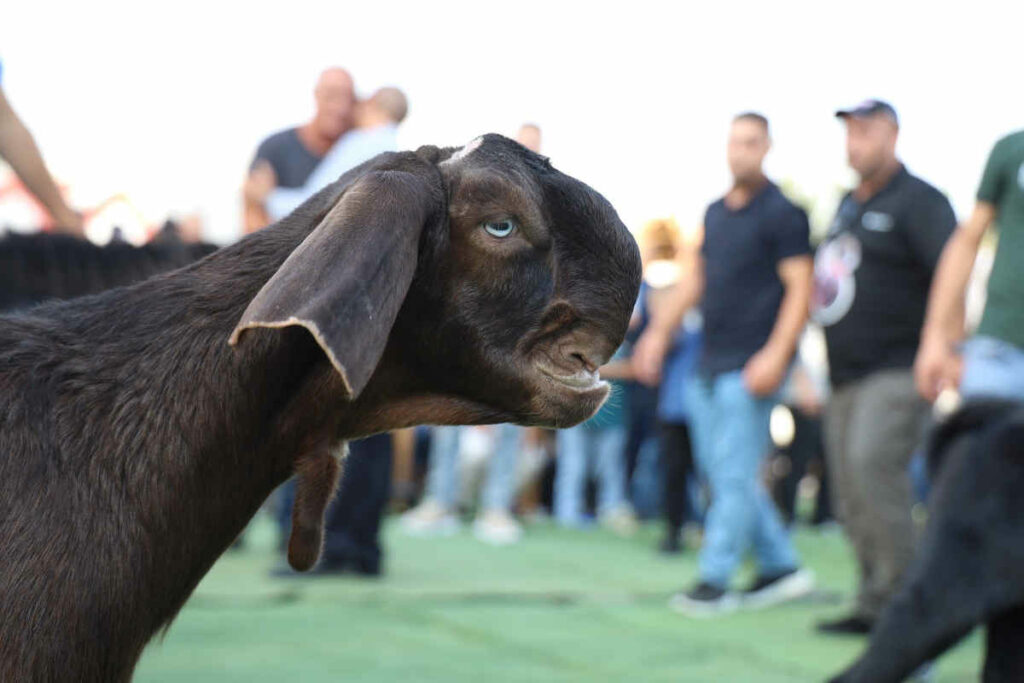
The Damascus goat, also known as the Shami goat, is quickly gaining recognition among livestock enthusiasts and farmers around the world. Originating from the Middle East, this remarkable breed is prized for its unique characteristics and versatility. Whether you’re a seasoned farmer or someone interested in sustainable farming, learning more about the Damascus goat can be the key to expanding your livestock farm with a breed that offers both beauty and utility.
Origins and History of the Damascus Goat
The Damascus goat traces its origins to the region surrounding Syria, Lebanon, and Jordan. It has been a staple of Middle Eastern agriculture for centuries, primarily known for its ability to thrive in harsh environments. This breed’s history is steeped in the traditions of nomadic herders who valued the Damascus goat for its hardiness, ability to produce milk, and high-quality meat. Over the years, the Damascus goat has become synonymous with the region’s agricultural practices, often being used for both milk and meat production.
Physical Characteristics of the Damascus Goat
One of the standout features of the Damascus goat is its striking appearance. These goats are typically large and muscular, with males often weighing between 80 to 100 kg (176 to 220 lbs) and females around 50 to 70 kg (110 to 154 lbs). They have long, pendulous ears, a prominent Roman nose, and a distinctive white and brown coat. Their ears and face give them a unique, almost regal look, making them a favorite among those who raise goats for show.
Their robust physique is not just for show. Damascus goats are incredibly resilient and well-suited to challenging environments. They are particularly adept at handling high temperatures and arid conditions, which makes them a valuable asset for farmers in regions where other breeds might struggle to survive.
The Damascus Goat’s Role in Farming: Milk, Meat, and More
The Damascus goat is a multi-purpose breed, which is one of the main reasons for its growing popularity. Here are the key ways this breed contributes to farming:
Milk Production
Damascus goats are highly valued for their milk. The milk produced by these goats is rich in fat and protein, making it ideal for making cheese, yogurt, and other dairy products. The milk is known for its creamy texture and excellent flavor, which is why Damascus goat dairy products are in high demand in both local and international markets.
Meat Production
Known for their meaty build, Damascus goats are also raised for their high-quality meat. The meat is lean, tender, and flavorful, making it a preferred choice for gourmet dishes. Because of their size and musculature, Damascus goats typically yield a significant amount of meat, making them an economically viable option for farmers focused on livestock farming for food production.
Adaptability
These goats are especially popular in dry, hot climates due to their hardiness. They can survive on less water and food compared to many other goat breeds, which makes them perfect for regions where resources are scarce. Their ability to thrive on sparse forage makes them an attractive option for sustainable farming practices.
High Reproductive Rate
Another reason for the Damascus goat’s growing popularity is its high reproductive rate. This breed can produce multiple kids per year, which can result in faster herd expansion for farmers. Their maternal instincts are strong, and they are known to be good mothers, making them easy to raise for both new and experienced farmers.
Why Farmers Are Turning to Damascus Goats
As interest in sustainable farming grows, the Damascus goat is becoming an increasingly attractive option for farmers worldwide. Here’s why:
Economic Viability
With their ability to produce both milk and meat, Damascus goats offer excellent economic returns. Whether you’re focused on dairy production or meat farming, this breed can contribute to a diversified farming operation. Additionally, their hardiness in tough climates means lower input costs for farmers, making them a smart investment.
Low Maintenance
Despite their impressive size and distinctive appearance, Damascus goats are relatively low maintenance. They are hardy animals that require minimal care, particularly in areas with harsh climates. This makes them ideal for farmers who may not have the time or resources to dedicate to more fragile breeds.
Market Demand
As consumers become more aware of the health benefits of goat products, the demand for Damascus goat milk, meat, and dairy products is steadily increasing. Their dairy is often marketed as being more nutritious than cow’s milk, and the demand for specialty goat cheeses continues to rise. This opens up new opportunities for farmers who wish to enter niche markets.
Conclusion
The Damascus goat is emerging as a versatile and resilient breed that can offer significant benefits to farmers around the world. Whether you’re looking to expand your livestock operation with a hardy breed capable of thriving in tough conditions or interested in the high-quality dairy and meat production, the Damascus goat is definitely worth considering. With their growing popularity, Damascus goats are not just a passing trend—they’re becoming a cornerstone of sustainable farming practices worldwide.
By understanding the unique characteristics and benefits of this breed, you can make an informed decision about whether the Damascus goat is right for your farm.